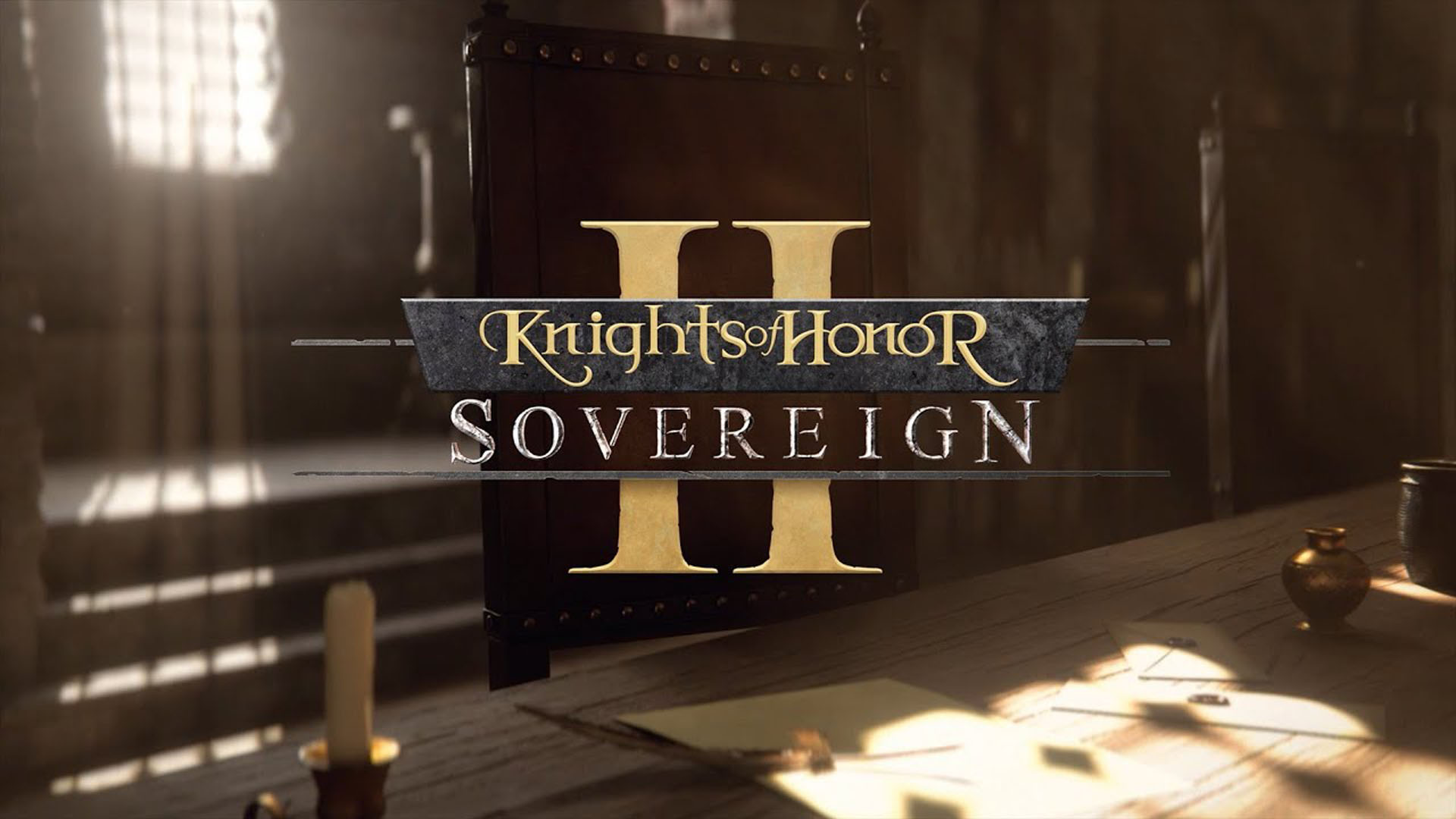It’s hard, being the ruler of your lands. Your scheming nobles are a problem, the peasants are revolting and your armies are struggling to hold back the tides of enemies streaming into your lands. You have all the tools at your disposal to counter all of this, however, and its time for you and your knights to make their mark on history… Welcome to Knights of Honor 2: Sovereign.
The Nation’s Fate Is In Your Hands
Knights of Honor 2: Sovereign is a real time grand strategy game developed by Black Sea Games and published by THQ Nordic. In it, you take control of a nation as its sovereign leader, and are tasked with building up the economy, managing diplomacy and conducting warfare. You are in control of the fate of your nation, and its important to make sure that you plan your next steps accordingly.
There are 3 time periods you can start in – these are 1110, 1224, and 1360 AD. The starts are the same for the most part; the only differences are the maps and nations are different for each and show the historical borders of the respective timeslots – for example, the Mongols are present on the eastern side of the map in 1224 but don’t exist in the other starts (although a successor state does in 1360). In addition, some units are only present in certain eras – for example, Vikings are available to Scandinavian nations in some areas in the 1110 start, but don’t exist in any of the later dates. Other than this though, the starts are the same for each date. The map consists of many provinces, each under the control of a city, and your objective is to take as many of these as possible.
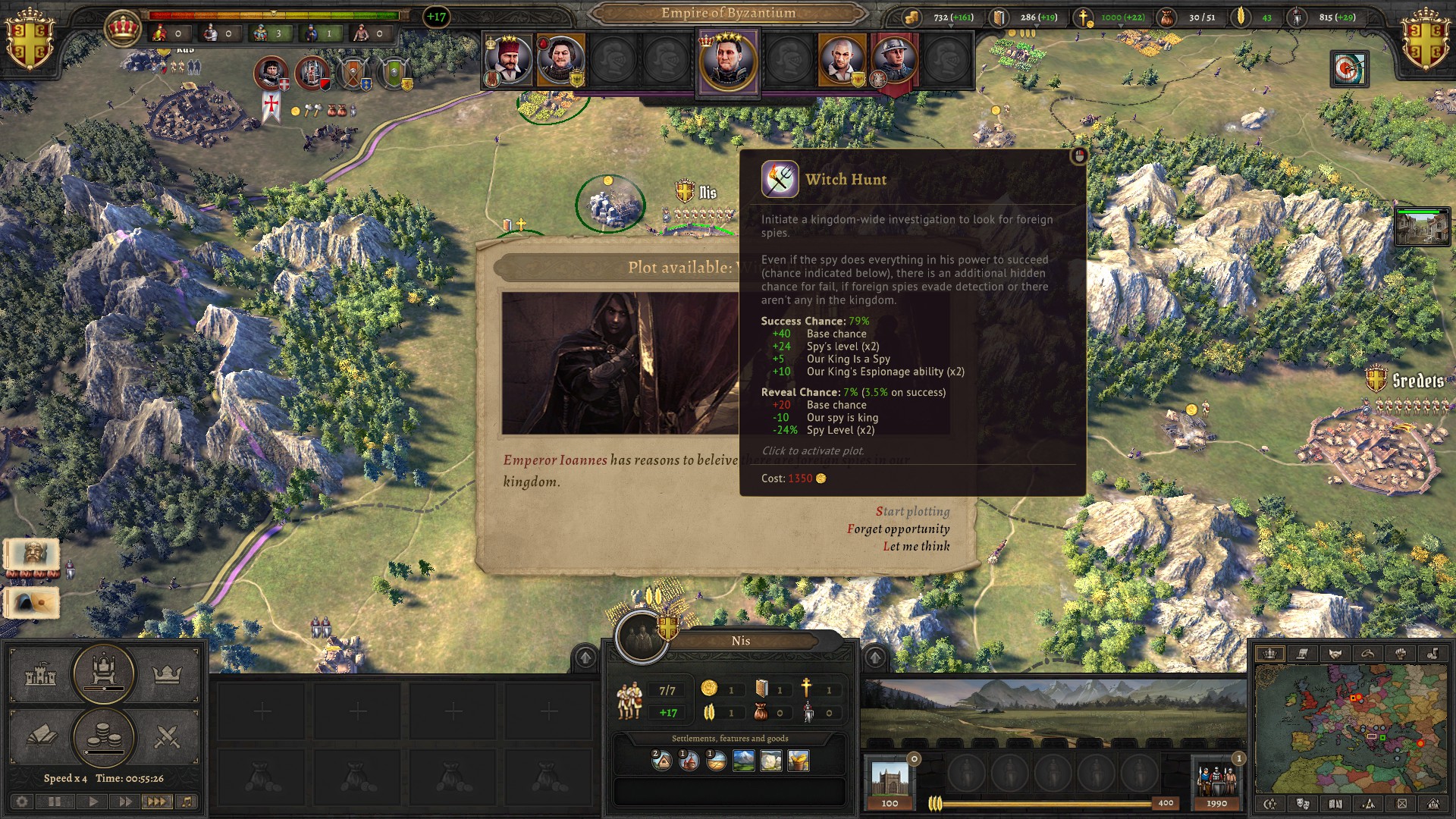
Your Starting Moves
Once you load up a start as any nation in Knights of Honor 2: Sovereign, there are several resources you will need to take stock of before you begin and will need to keep track of over the course of a game. These are gold, books, religion, commerce, food, and levies. Gold is the lifeblood of your economy, and is used to pay for buildings, upgrades, armies and so on – it is a critically important resource and a fundamental building block of your game, especially in the early period. Books are used to improve the eponymous Knights within your kingdom, including your monarch, in addition to adopting traditions for your kingdom.
Religion is used for converting provinces, as well as completing various actions by clerics, and they become important slightly later in the game when you need to deal with unrest and conversion as you conquer more land, especially against nations of a differing religion. Commerce is used for trade – this could be exporting food, importing resources, or establishing trade routes with a friendly nation. Food is used as an upkeep for your armies, and you’ll need to secure a decent supply of it to make sure that your armies don’t start revolting and causing issues.
Finally, levies are used to recruit specialist troops other than peasants, and to improve garrisons of your towns to secure against any opportunistic enemies. All these resources are critical and developing your nation to produce more of them over time is a critical pillar of gameplay.
One of the ways to improve your resource gathering is with your Knights. Knights come in various forms – diplomats, merchants, marshals, clerics, and spies. All fulfil different roles in your kingdoms and will help to produce different types of resources in the area they govern. For example, merchants will improve gold income and commerce, whereas marshals will increase the number of levies that they can be drawn from the area they’re in control of. Skills help to increase these gains, and these are important to be improved over time using books and gold to reach the true potential of your knights. Each knight can take 3 skills of their primary attribute, and 2 of a secondary type. – for example, marshals can take 3 military skills, and then 2 further skills of any further type such as stewardship or diplomacy.
Some of the secondary skills help to reinforce their primary attribute, such as the logistic skill which is part of the stewardship group helping to reinforce your marshal’s military capabilities in various ways. These skills are chosen at random within their respective classes, and to begin with you won’t be able to guarantee what you want to get, but over time you can adopt traditions so that they always appear and give permanent and powerful bonuses to your nation – for example, adopting writing greatly increases the amount of books created by any characters that take that skill, whilst providing bonuses to your kingdoms your cultural power, overall book income and religion.
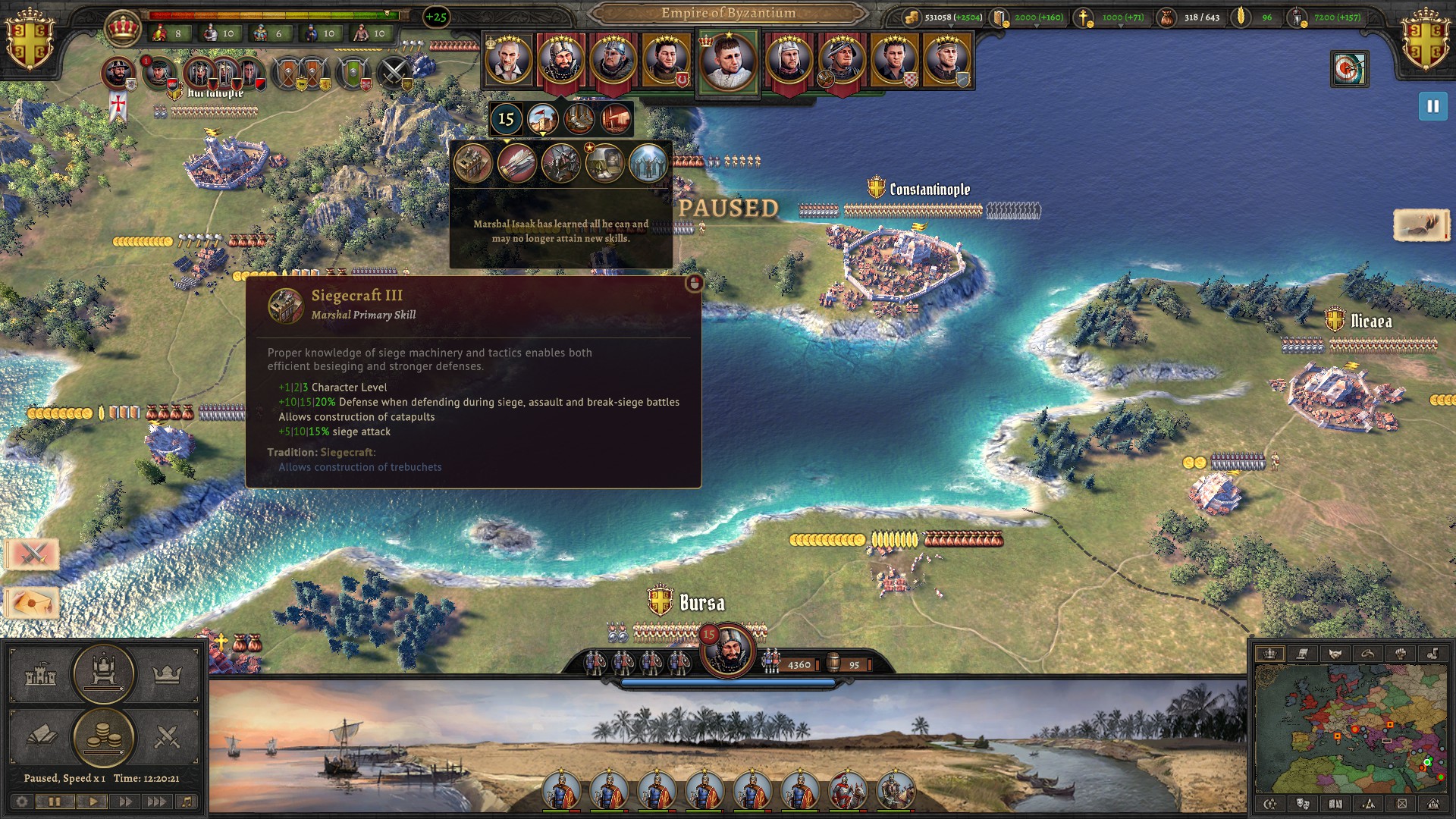
Knights To Meet You
It’s important to make sure that your Knights are governing the correct province, as this will make the most of the various skills they now possess. All your knights should be governing the biggest areas with the most towns in, but Clerics should also be in an area where there are many monasteries as possible as an example, to truly make the most of their skills. If you do this, you’ll then get more books and religion than you otherwise would in another province, helping to further your aims moving forward. Finally, your knights can undertake various actions pertaining to their class – diplomats can form pacts with other nations, traders can establish trade within other nations, and clerics can convert provinces to your religion. All are an important part of your nation, and an additional option to fall back on in your toolbox if required.
In Knights of Honor 2: Sovereign, there are various political groups that you will need to keep an eye on and placate at times. These groups are the nobility, army, merchants, clergy, and peasants. All are important and are an indicator for how stable your nation is in various areas; in addition, all confer various bonuses or maluses to your nation depending on how happy or angry they are. An example of this is the army, when happy, will increase the morale of your troops making them more effective in battle, and reducing the cost of mercenaries amongst other things.
Conversely, if you annoy the army, then you will have reduced morale and increased costs – keeping an eye on the happiness of your various political groups is important, and if you fail to do so the consequences could be fatal to your ambitions. On the other hand, assuaging the concerns of these groups and keeping them happy helps with the stability and happiness of your kingdom – individual provinces are generally less likely to rebel, and less unrest means you can focus outward, instead of inward. Another benefit is when your monarch dies matters of succession are more likely to go smoothly.
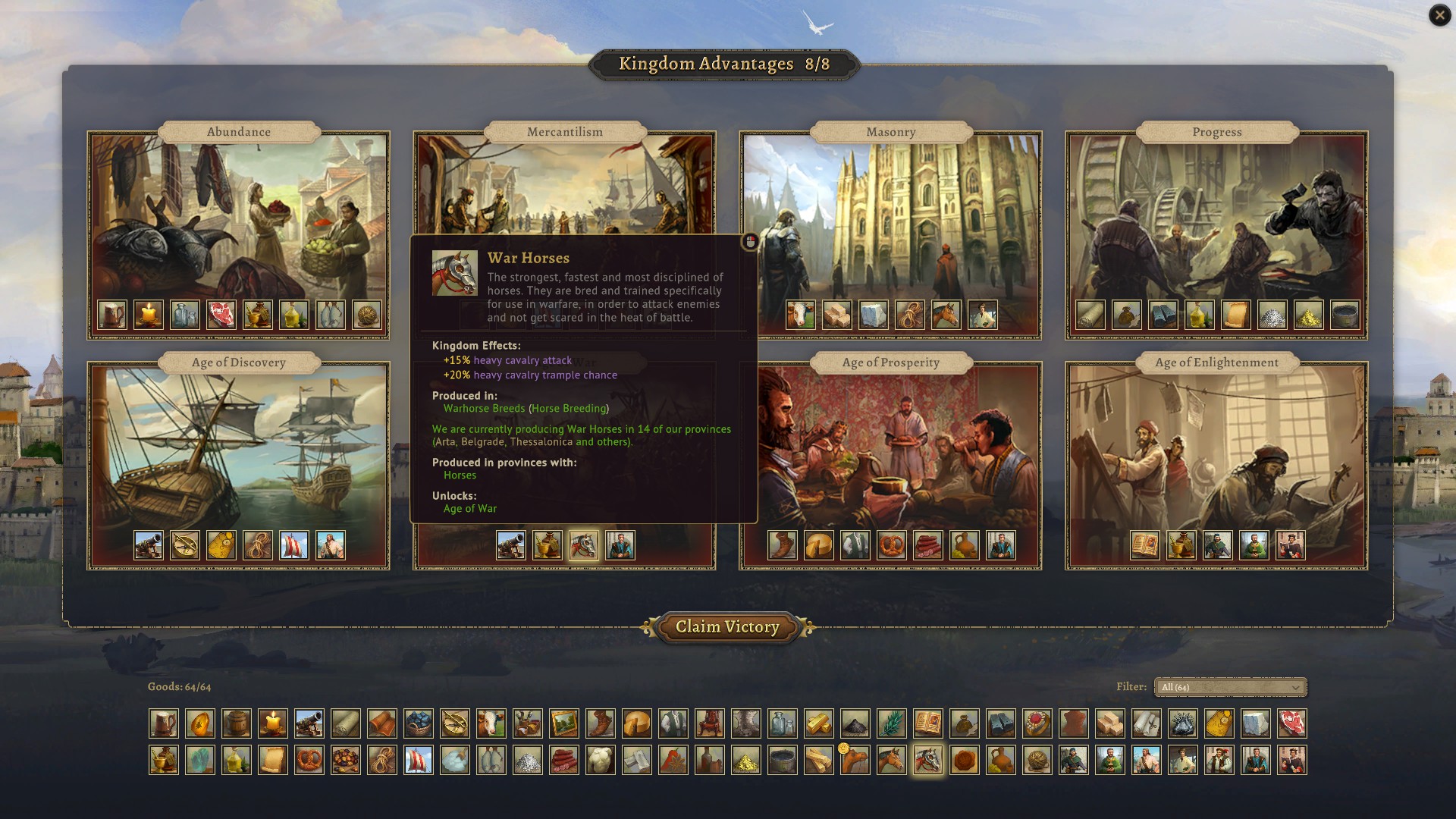
Turning Your Gaze Outward
When you’ve dealt with your internal problems, it’s time to look outside your kingdom. Diplomacy is an important part of your game. Clicking on another nation’s town, and then their coat of arms, will take you to the leader of that nation and allow an audience. In these audiences, you can offer or demand certain things such as non-aggression pacts, trade agreements, or to demand/offer assistance in wars. Alternatively, if you covet the resources of a particular faction, you can just outright declare war, and begin your conquest immediately.
Some of the more powerful diplomatic options are locked behind the diplomat, and these knights will be required to be present in your court to use them – these actions could be to create defensive pacts against a mutual threat, or to plan a joint invasion of a particular target. However, diplomacy is not the only option you have to gain what you want – sometimes, the sword is mightier than the pen…
In Knights of Honor 2: Sovereign, warfare is pretty much inevitable to secure the resources your nation needs to succeed. Sometimes you’ll be the target, sometimes you’ll be the aggressor, but in either case, its time to put your armies to work. Armies are raised and led by marshals and will be used to plunder or capture enemy areas or defending your own lands. There are two parts to warfare – the real time control of your entire army on the campaign map, and tactical engagements against the enemy on a much smaller map.
To begin with before any of this though, you’ll need to make sure that you have recruited the troops in the first place. When you bring your marshals army to a settlement, and from there can recruit various troop types depending on the buildings present – to begin with it’ll just be peasants, but once you’ve got the relevant barracks buildings and upgrades these can go range from spearmen to archers, to more specialist troops such as horse archers and camel cavalry.
Some parts of the world allow specialist troops – as an example, in the historical heartlands of Byzantium you can recruit heavy cataphract cavalry or roman heavy infantry to smash your enemies asunder. Deciding on your composition is important and will be affected by the skills of your marshals – my particular favourite was recruiting infantry heavy armies and getting skills for my marshals that increased the effectiveness of infantry, to drown the enemy in numbers. An alternative method of recruiting troops is via wandering mercenary groups, and this can via extraordinary expense give you the option for troops to be hired you might not have access to, or if you’re low on manpower and levies to recruit from, another source of bodies to chuck into battle.
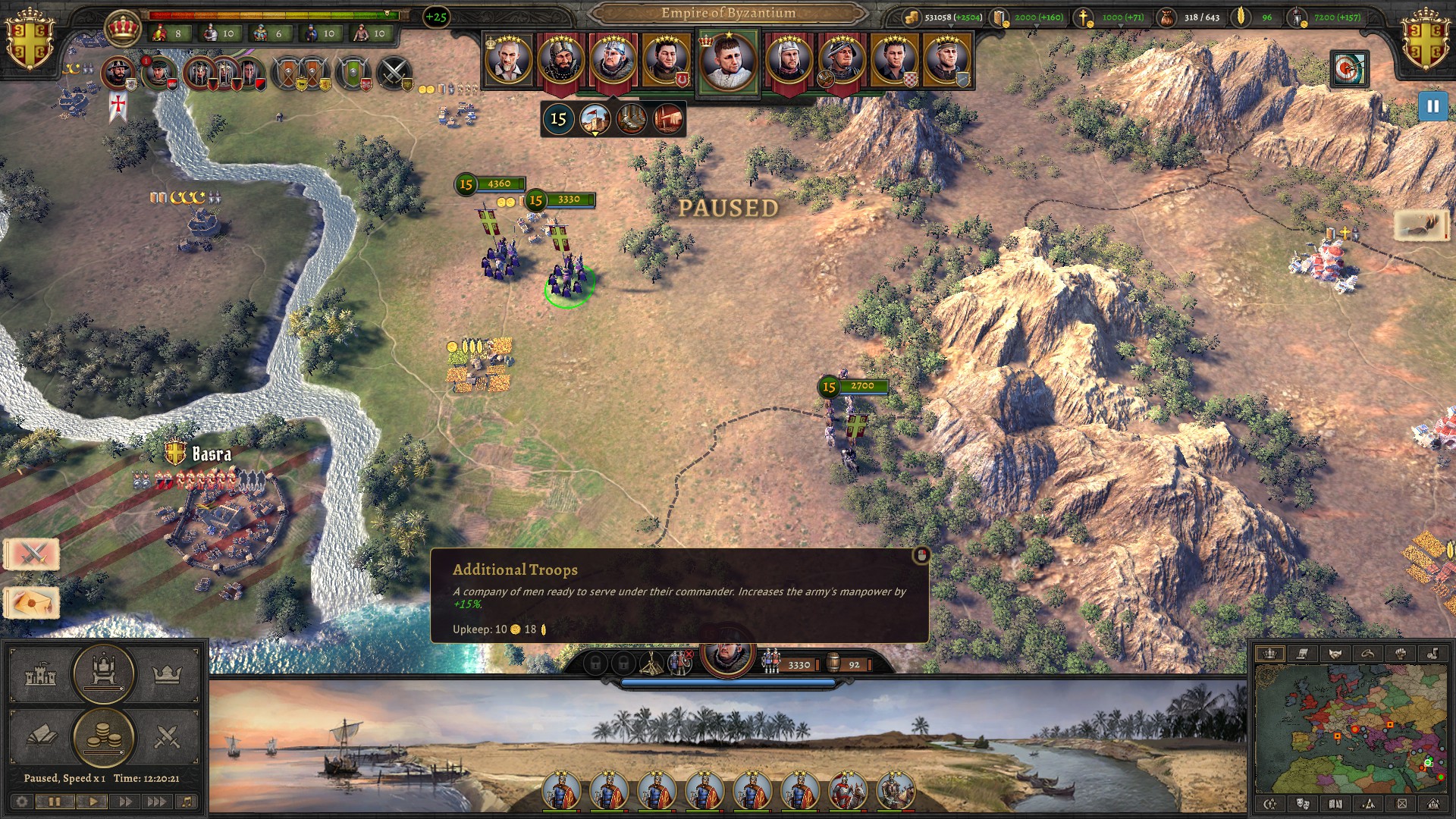
The Crucible Of Warfare
Once your armies have been gathered, it’s time to fight the enemy. During a war, it’s inevitable that your troops will meet the enemy on the battlefield. This can play out in two ways – battles can be auto resolved, or you can engage in real time battles on a tactical map. These battles allow you to control the various troops that make up your army and play out similar to a traditional RTS. The usual rock-paper-scissors applies – archers counter infantry, cavalry counter archers, and cavalry are countered by some infantry such as spearmen.
I found the usual hammer and anvil tactics, using infantry to hold the line and cavalry to flank was effective, and my primary tactic was to focus the enemy general asap as killing them would immediately end the battle in your favour. There is some nuance to your setups, as unit formations (such as square or wedge formations) can be used, or to widen or shrink your lines. It’s not as extensive as a total war game, but it’s a fun core to work around – there are some quality-of-life features that would be nice though. Being able to zoom out more would be nice, as the camera zoom is a bit limited.
In addition, it would be nice to choose where your units are setup at the start of the battle. Another thing is that enemy AI can often be a bit unintelligent when trying to protect its general, and just focusing it is often an easy way to win a battle. Finally, and something neither good nor bad but worth noting, it is often better to just autoresolve instead of resorting to these battles, as the autoresolve I would find to be very generous at times. Either way, once you have won your battles, and sieged down the enemy settlements, the conquered land will fall under your control, although there are some things you’ll need to do first.
On successfully sieging a settlement in Knights of Honor 2: Sovereign, it’ll have disorder you’ll need to deal with first before it’ll offer up its resources to your nation. This can be done by using a marshal to suppress the populace, although this is unpopular and can cause a rebellion, or alternatively using a cleric to adopt the populace and assuage their fears. Once done, it’ll give you full access to the buildings and resources present in that area. Newly conquered areas may follow a different religion or culture, so your clerics will be useful to convert these provinces to your standards so that there is less chance of unrest and uprising moving forward. Once done, it’ll be a good choice to continue building up your buildings, as these will help with unlocking more troops, giving you more resources to trade and various bonuses to your empire.
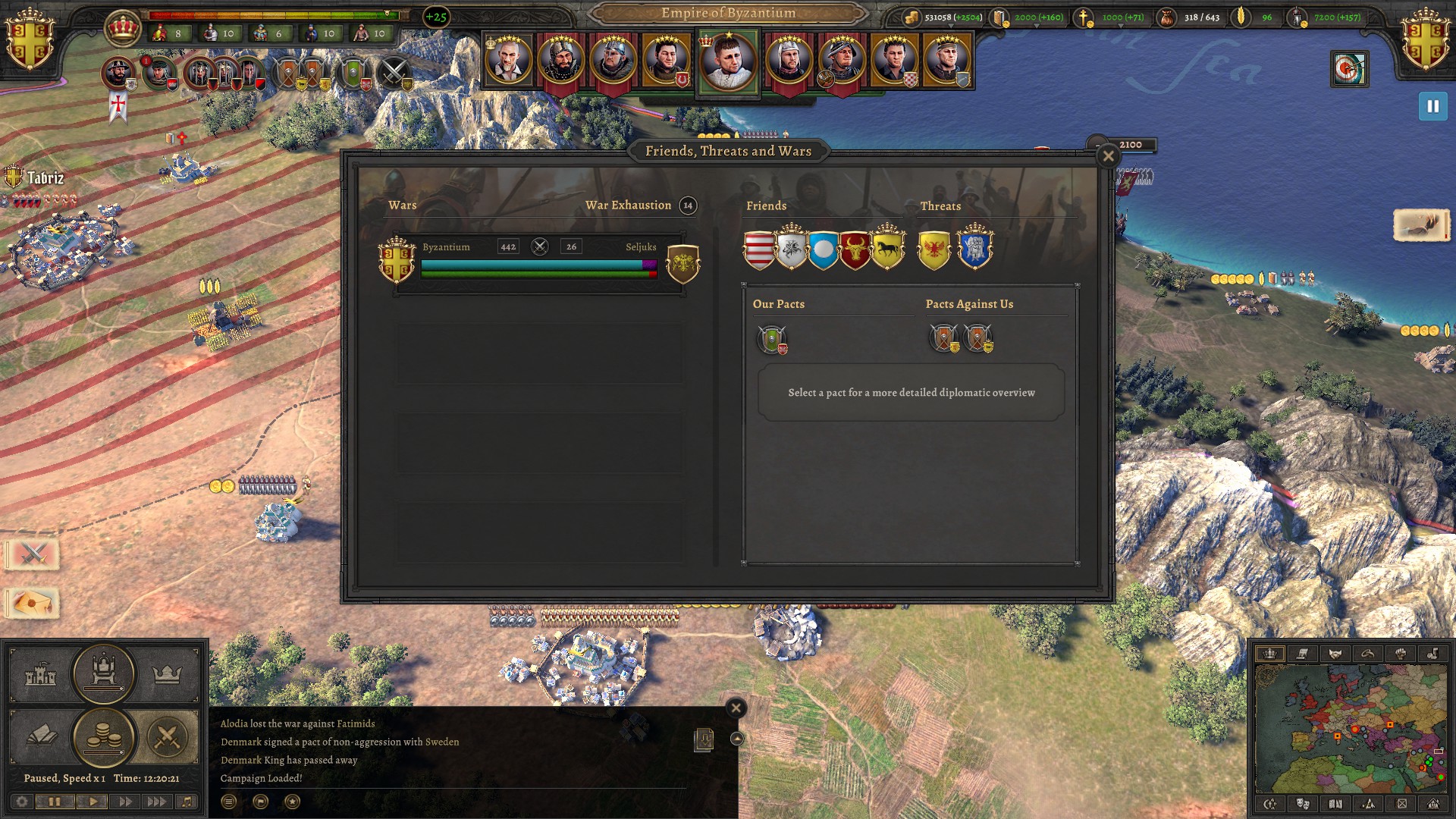
Trading Places
Trade is an important facet of your gameplay and will be one of the main ways you’ll be able to pay for your armies and buildings. Your merchants can open trade routes with nations you have a trade agreement with, as well as trade for resources you don’t have within your nation or to export food. The latter is a good way to make a bit more money if you’ve focused on agriculture within your nation and can help if you’re in a bit of a pinch economically. Another option you have with your merchants, when you have the prerequisite buildings, is to send them on an expedition.
These are fraught with risks, but the rewards could be great – gold will overflow your coffers if you have the luck to succeed. One of the main uses of merchants though, is to trade for resources you can’t produce yourself (until you conquer a territory that produces them anyway). This will help you to gain advantages that you want to improve various facets of your nation, such as iron helping to improve your troops or draught oxen to help with your agriculture.
These advantages are incredibly useful and can change the shape of your game. There are 64 goods in the game, and each confer an advantage upon your empire if you either produce or have traded for it. Most of these goods are also put into sets, where if you manage to collect each good in those sets, you’ll gain additional powerful bonuses. These could be additional streams of income, or happiness in your kingdom, and are a very useful additional thing to keep track of.
Planning your conquests around what resources you’ll need to complete these sets is important. If you manage to collect all these sets, then you can immediately claim an economic victory and win the game. Other methods to win the game include conquering the entire map, being elected emperor of the world by the great powers in your game, or via minor objectives such as destroying one randomly suggested nation if minor objectives have been chosen in the game setup.
As ever in the medieval period, Knights of Honor 2: Sovereign has plenty of skulduggery and espionage to keep track of, and spies are your main vessel to utilise to both take advantage of and counter this mechanic in your empire. Enemy spies can infiltrate your lands, causing unrests, rebellions, and defections to occur and can critically weaken your empire at a crucial time, as has happened to me several times during a war. You counter this with spies of your own – they can do the same to other nations, or just root out any troublemakers in your own lands to keep them safe.
Spies are masters of infiltration, conspiracy, and assassination and yet another important part of your toolbox to utilise. I found that the enemy AI could be utterly brutal in its use of espionage against you, and would often be a legitimate threat – often, armies didn’t scare me, at least to begin with, but the insidious threat of enemy agents within my nation causing revolts and defections did.
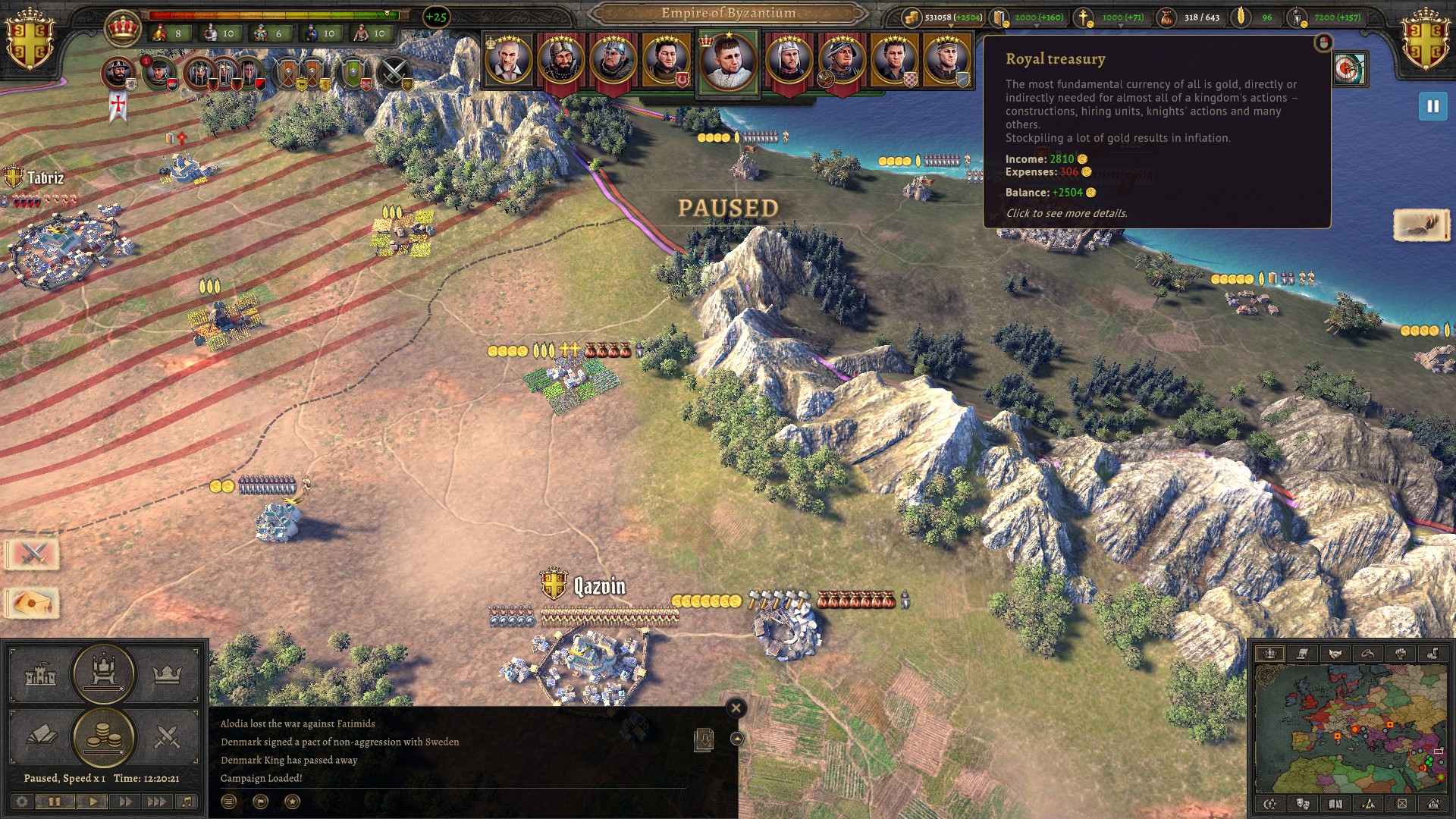
The Sound Of War
The sound design in Knights of Honor 2 is a bit mixed – the soundtrack is good, for the most part, but I do wish there was more of it, and can get a bit repetitive after a while. The sound effects are fine, but nothing special, and there is plenty of voice acting. The voice acting is a bit mixed, and ranges from very good down to ok – the voice acting of units in tactical battles in particular is a bit lower quality to my ears than that in the main menus and on the campaign map. The graphical design is also mixed – the campaign map looks fine, and the menus overall look pretty good and aren’t too confusing, but the graphical fidelity in some areas is a bit lacking, such as shields showcasing the flags of nations and the units in tactical battles. That said, it’s definitely usable and overall, not too much a detriment to the game.
There are quite a few things to praise, however, such as the performance of the game – I had no issues with stuttering, or crashes at all in the 50+ hours I played the game for review (except for some small slowdown if on max speed when autosaving) on my 5 year old system. I didn’t run into any noticeable bugs over the course of the game, either. In addition, the game just generally feels nicely polished and well put together, and although more systems would be nice to be added in hopeful future for additional replayability, it doesn’t feel like there is any outright content missing either. Each type of Knight feels useful, and I had fun deploying each of them to try and make the most of their abilities. In an age of early access games, and even fully released games missing many features and being full of bugs, it feels very good to have a game that just feels feature complete and a joy to play.
Overall, Knights of Honor 2: Sovereign is a fun and well made addition to the grand strategy market. It was always going to be tough to stand up to the leaders in that genre, but the game makes a good case for itself, and I enjoyed my time playing it overall. With a few additional quality of life features over time, and hopefully more content moving forward, it can live up to its full potential and maybe even rise to the throne itself.

Knights of Honor 2: Sovereign is launching on PC via Steam on December 6th, 2022.
Developer: Black Sea Games
Publisher: THQ Nordic
Disclaimer: In order to complete this Review, we were provided with a promotional code from the publisher. For our full review policy, please go here.
If you enjoyed this article or any more of our content, please consider our Patreon.
Make sure to follow Finger Guns on our social channels. Twitter, Facebook, Twitch, Spotify or Apple Podcasts – to keep up to date on our news, reviews and features.
